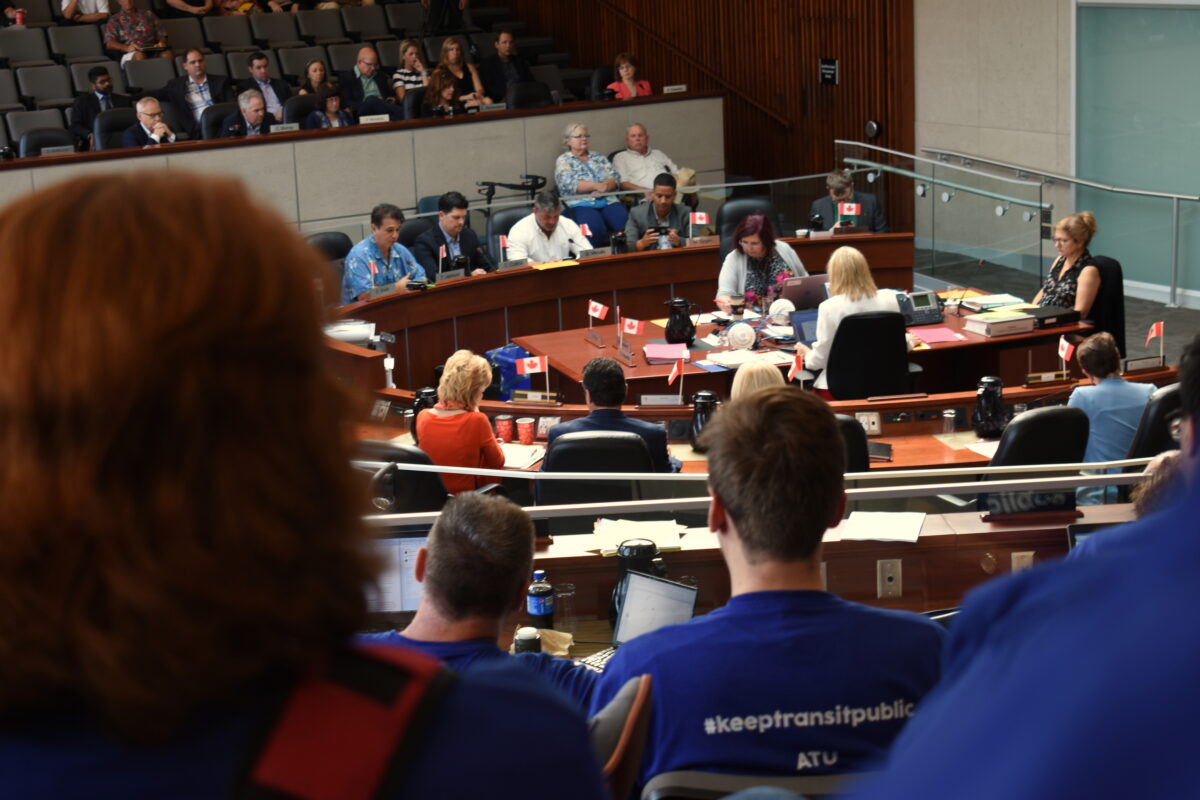A couple of years ago, I was subpoenaed to the Conservation Review Board in a dispute between the lawyer for City Council and an appellant.
The appellant sought to enter the statements of Councillors into the record at the CRB, and the lawyer for Council objected on the grounds the The Public Record’s recordings were a violation of Council’s privacy. By the time I sat on the stand, the City’s lawyer focused their questions on ensuring that the Board would receive an unedited copy of the recording of a May 2014 meeting.
The underlying issue for the City lawyer was that Councillors had made statements prejudicial to the appellant, and this would undermine the City’s case.
The OMB and CRB have both ruled The Public Record’s recordings of public meetings are legal, and may be entered into evidence at hearings. It is now common for appellants to enter statements by Councillors with my video as the proof.
The Public Record is literally the public record
During the Ward Boundary Review OMB hearing, counsel for the City argued extensively for the exclusion of Councillors statements, tell the Board they should only consider the outcome of the Council vote, not the individual motives of Councillors in voting. The Board rejected this.
During public participant statement phase of the hearing, numerous speakers from Ward 8 referred to any change to ward boundaries as “reckless and dangerous”. The next day, Ward 8 Councillor Terry Whitehead’s use of this phrase during Council debates was entered into the record by another participant citing written reports of meetings. Appellant Rob Dobrucki successfully entered my video of debates during which Councillors referred repeatedly to the “balance of power” as a primary motivation for their support of gerrymandered wards which effectively maintained the status quo.
In the end, the OMB ruled against Council’s wards, citing ‘balance of power’ as a key factor in the ruling.
What Councillors Say Matters
Last week, I attended the Ontario Municipal Board prehearing for the appeal against the City’s Pier 8 redevelopment plan. The short summary of the prehearing is City Council suffered a significant setback when the Board ruled it will review Council’s potential conflict of interest in being both the planning approval body and seeking to maximize the value of the land for sale. (Read the full story here)
Once again, the Board made its decision based upon statements made by Councillors while deliberating.
As the planning authority, Council’s responsibility is to plan communities for the maximum benefit of community as a whole, while meeting the requirements of provincial planning policies. In the case of Pier 8, numerous Councillors cited a desire to maximize the City’s revenues in selling the land; and repeatedly pressed for changes to the plan to maximize those revenues.
It is for this reason that the lawyer for Council fought to have the OMB exclude statements by Councillors. Having lost that battle, Council’s lawyer now faces the uphill battle of convincing the OMB that statements of Councillors shouldn’t be taken at face value.
It remains to be seen how this effects the City’s planned sale of the Pier 8 lands this spring; it is possible the sale will be delayed as the OMB case progresses, or possible the industrial appellants – who have the strongest case against the Pier 8 development – will reached an agreement with the consortium the City decides to sell to.
One thing is certain, what Councillors say matters. In the age of growing transparency and video recording of every meeting, Councillors need to remember this more than ever.

